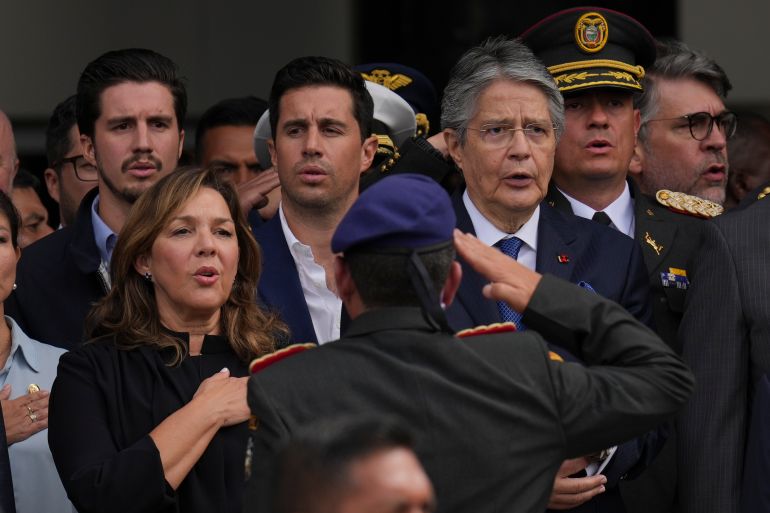Ecuador legislators launch lawsuit as elections eyed for August
Moves come after President Guillermo Lasso, facing impeachment, dissolved legislature and triggered new elections.

Members of Ecuador’s political opposition have launched a lawsuit challenging a move by the country’s president to dissolve the National Assembly instead of facing an impeachment proceeding.
The lawsuit, filed on Thursday, comes as the country’s electoral court said Ecuador could hold elections as soon as August.
Keep reading
list of 3 itemsEcuador opens investigation into explosives sent to news media
Ecuador: ‘Modern-day slaves’ seek justice in landmark trial
A day earlier, Lasso had invoked a quirk in Ecuador’s constitution known as the “two-way death”, which both dissolved the National Assembly and triggered new presidential and legislative elections.
“We require, we demand an immediate pronouncement from the Constitutional Court,” Virgilio Saquicela, the assembly’s former head, said of the lawsuit in an interview with The Associated Press. It is one of several legal challenges to Lasso’s move.
The lawsuit argues that Lasso’s action violated the constitution because the country was not experiencing any social upheaval. Instead, Lasso’s detractors have argued, the president chose to disband the chamber merely to avoid his own potential ouster.
The president’s decision on Wednesday came a day after the opposition-controlled National Assembly began its second impeachment proceedings against Lasso, following a failed attempt last year.
The impeachment hearing centred on allegations that Lasso intentionally turned a blind eye to an embezzlement scheme related to the state-owned oil transportation company Flopec. Opposition lawmakers have said the issue is among a pattern of misdeeds.
Lasso, however, has denied any accusations of corruption. He will remain in office and govern by decree until his successor and a new legislature are elected, according to the constitution. That can last for up to six months.
The National Electoral Council is now required to set a date for presidential and legislative elections within seven days of Lasso’s decision.
Council President Diana Atamaint told the Teleamazonas television network that a tentative date for the vote is August 20. If needed, a run-off would take place on October 15.
Those challenging the move say that time is of the essence, because after the election date is set, “no authority may interfere in the carrying out of the process”, lawyer and electoral analyst Medardo Oleas told The Associated Press.
Legislators who succeed in the early elections would serve only until regularly scheduled elections are held in 2025.